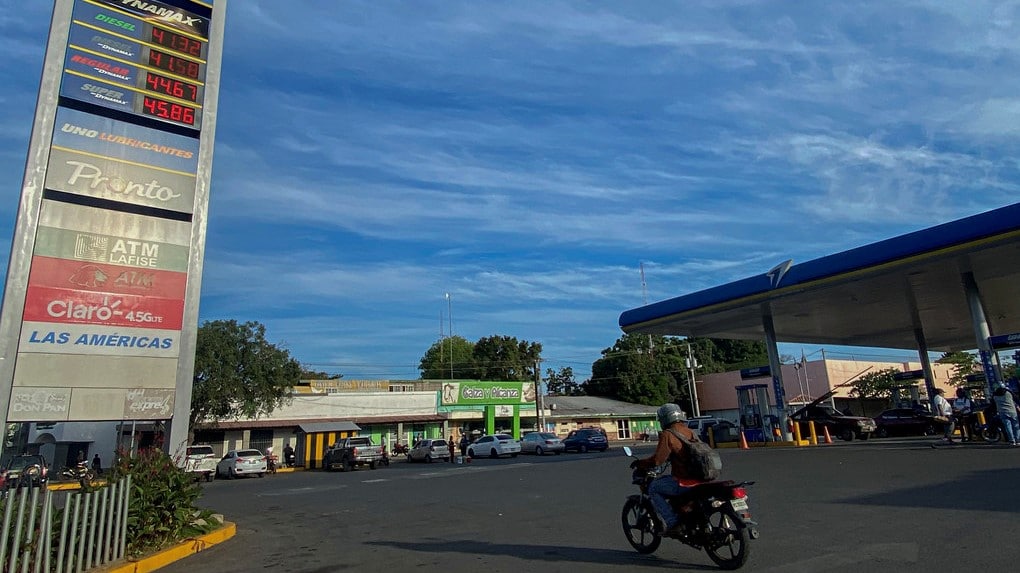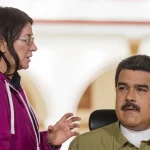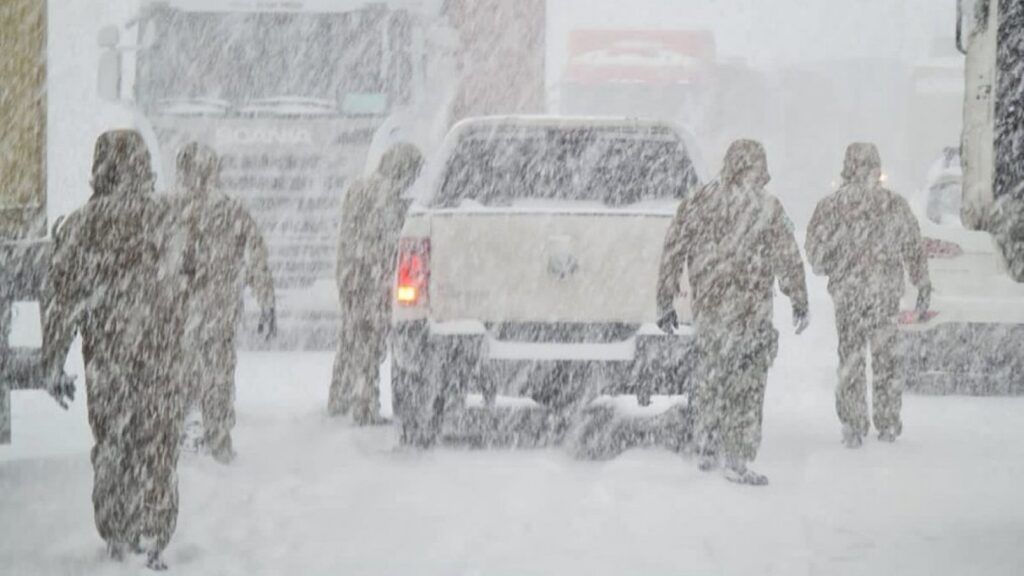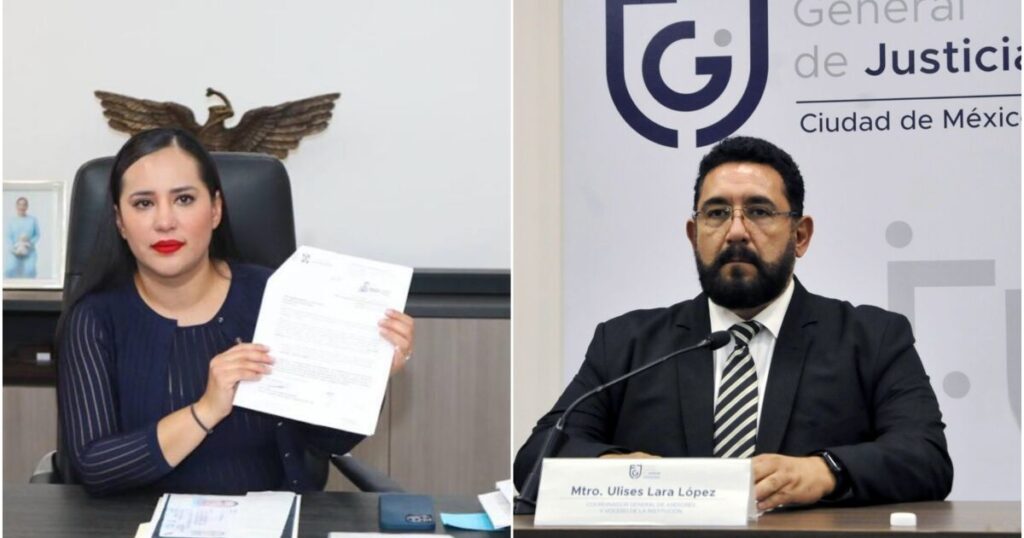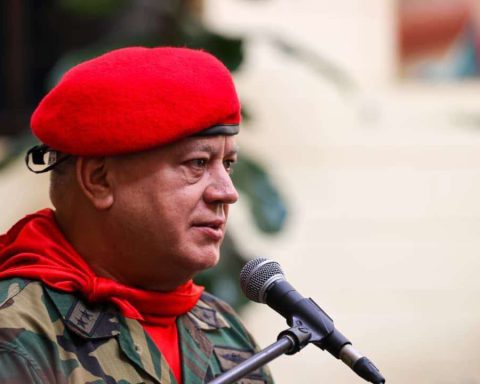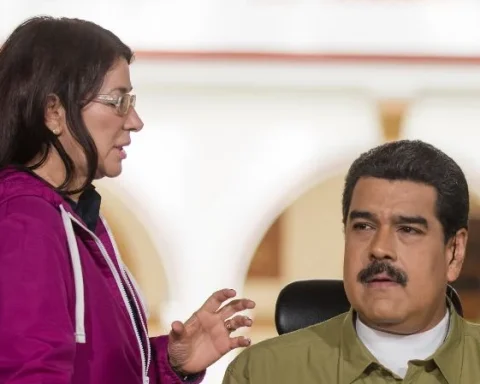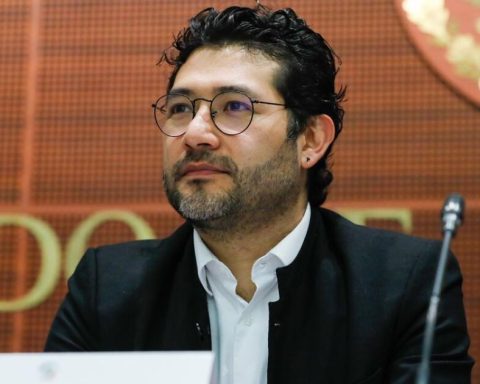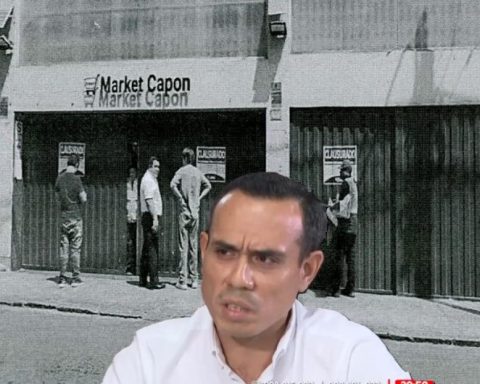Super and regular gasoline exceeded the barrier of 40 cordobas per liter in the second week of October 2021; the diesel did it in the middle of last February. In both cases there was no war in Europe and oil was not trading above $100 a barrel. The Russian invasion of Ukraine has given the justification —according to hydrocarbon experts— to the Nicaraguan oil companies to keep fuel prices above 40 cordobas and, in an “extreme case”, approaching 50 cordobas per liter.
For this weekend, fuels are expected to maintain the prices established since the first week of March: 45.80 cordobas per liter of the super; 44.64 cordobas per liter of the regular; and 41.38 cordobas per liter of diesel, as anticipated by the portal Delepesoasupesos.
These average prices correspond to service stations in Managua, since in the other departments and regions of the country the cost of transportation and distribution, as well as other expenses, must be added.
The last time that super and regular gasoline were less than 40 cordobas per liter was in the first week of last October: at 39.85 and 38.93 cordobas, respectively. In the case of diesel —the fuel with the highest consumption at the national level—, in the first week of February it was quoted at 39.50 córdobas, according to price monitoring by the Nicaraguan Institute of Energy (INE).
For Rubén Ernesto Arriola, an expert on consumer issues, the oil companies in the country have never needed a war in Europe to increase prices, since Nicaragua has always suffered the consequences of increases in oil and its derivatives. However, the invasion of Ukraine “is the justification” to keep prices high, even though “prices are lower” in the world.
Price hikes and freezes
In the last year and a half, fuels have registered two periods that explain the current prices: one, of an unjustified increase; and the other, a freeze when oil was going down.
Between November 2020 and March 2021, fuels registered sixteen weeks of increaseswithout there being —according to the experts— any “technical or economic” reason to justify such increases.
In that period, super gasoline went from 28.25 to 36.23 cordobas per liter; while the regular price increased from 27.74 to 35.46 cordobas per liter; and diesel registered a rise from 24.24 to 30.59 cordobas, according to INE monitoring.
The regime of Daniel Ortega and Rosario Murillo kept the prices of petroleum derivatives frozen for more than two months, while the international value of crude fell almost 20 dollars per barrel. This decrease did not translate into a reduction in national fuel prices, which in Nicaragua are not regulated by the State and are set freely, every week, by the oil companies.
With the decision of the regime, effective as of October 22, 2021 —two weeks before the general elections—, the average price of the super was frozen at 42.02 cordobas per liter; the regular one at 40.90 cordobas per liter; and that of diesel at 36.52 cordobas per liter.
After the thaw, in mid-January, fuels have maintained an upward trend, along with a rise in the price of intermediate oil from Texas (WTI), a reference for Nicaragua
Texas oil rises
According to the Efe agency, the price of Texas oil rose 1.7% this Friday and closed at 104.7 dollars per barrel on the New York Mercantile Exchange (Nymex), after Russian President Vladimir Putin accused kyiv of trying bog down negotiations to end the invasion of Ukraine.
This ascent occurs after the price of black gold shot up more than 8% on Thursday after the first information about the stagnation of the talks between Russia and Ukraine, which makes investors fear a lengthening of the conflict that could affect the oil supply.
The International Energy Agency (IEA) warned on Wednesday that there is a risk of an oil crisis starting in the spring and put pressure on OPEC, which has so far shown no willingness to compensate in the market for losses of Russian crude.
In its monthly report, the IEA assumes that as of April three of the eight million barrels per day that Russia exports will disappear. “If the Russians don’t find a way around the sanctions, oil prices will soon hit new highs,” Velandera Energy Partners CFO Manish Raj was quoted as saying by Market Watch.
In this sense, in its daily report, the Sevens Report firm points out that the price of a barrel could move in a range between 90 and 95 dollars a barrel and 117 and 122 dollars a barrel depending on the evolution of the conflict in Ukraine.
Government Options
Arriola urged a reform to Law 277 or Hydrocarbons Supply Law, with which the Government would control the fuel market and “impose prices on oil companies.”
Liquefied Petroleum Gas (LPG) —popularly known as “cooking gas”— is the only product regulated by the INE, while the prices of super and regular gasoline, diesel and kerosene are established by the oil companies. whose profit margins are at your discretion.
For the expert, a regulation of prices “would reduce the profits of the oil companies.”
Reports of CONFIDENTIAL have revealed that, until the beginning of 2021, Nicaraguan consumers have paid about 30 million dollars for an overpriced fuel.
This surcharge is obtained through freeze prices in Nicaraguawhen in the international arena fuels and oil fall.
Arriola indicated that, through the Consumer Manager Consultancy (CGC), they have detected that the “most convenient” for consumers is for the State to “eliminate some taxes” on petroleum products and the basic food basket. “It would alleviate and would be a respite for consumers” in Nicaragua.
For each gallon of fuel, the Government collects a percentage for the Conglobated Specific Tax on Fuels (IECC), and another for the Road Maintenance Fund (Fomav). The suspension of both or one of them would bring relief to consumers, according to experts.
